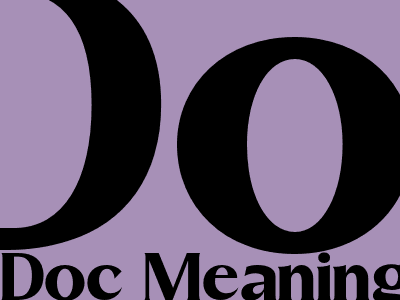
Doc Meaning: The Origin and Evolution of a Versatile Word
Etymology and Early Usage
The word "doc" is a shortened form of the Latin word "doctor," meaning "teacher." In the Middle Ages, doctors were highly respected figures who taught medicine and philosophy. Over time, the term "doc" became synonymous with physicians and other medical professionals.
Slang and Colloquial Meanings
In the 19th century, "doc" became a common term of endearment and respect for physicians, especially in rural areas. This usage has persisted to this day, with many patients referring to their doctors as "doc." Additionally, "doc" has been adopted as slang for a variety of other professions, including lawyers, professors, and even musicians.
Cultural Significance
The word "doc" has also taken on cultural significance beyond its literal meaning. In popular culture, "doc" is often associated with wisdom, authority, and trustworthiness. This is evident in the use of the term in film and literature, such as the iconic character of Doc Brown in the "Back to the Future" series.
Modern Usage and Variations
Today, "doc" remains a widely used term in both formal and informal contexts. As technology has advanced, the term has also been adopted in digital spaces, such as in the popular file format "doc" (short for "document").
Variants and Related Words
There are several variations and related words derived from "doc." These include:
*- "Doc" or "the doc": A respectful term for a physician
- "Doctor": A formal title for a medical professional with a doctoral degree
- "Doctorate": A doctoral degree, typically in academia or research
Conclusion
The word "doc" has a rich history and has evolved over time to encompass a wide range of meanings. From its origins as a term of respect for medical professionals to its contemporary usage as slang and in popular culture, "doc" remains a versatile and enduring word that continues to play an important role in our language.